Sailor and dog survive on rainwater, raw fish while adrift for two months
An Australian man has been rescued in the Pacific after surviving for two months on rainwater and raw fish in what has been likened to the film “Cast Away” – but his companion was a dog, not a hand-printed volleyball.
Sydney resident Tim Shaddock, a 51-year-old cancer survivor, and his pooch Bella set off from La Paz, Mexico, in April on a catamaran journey to French Polynesia, but their vessel was damaged in a storm several weeks later, Australia’s 9News reported.
The pair survived by drinking rainwater and eating raw fish as they waited for a miracle while adrift in the Pacific.
On Wednesday, a helicopter conducting surveillance for a tuna trawler spotted the tiny catamaran bobbing in the middle of the vast ocean.
In photos snapped after his rescue, the bearded Shaddock appears emaciated and bedraggled – much like Tom Hanks’ character, Chuck Noland, in the 2000 survival flick “Cast Away.”
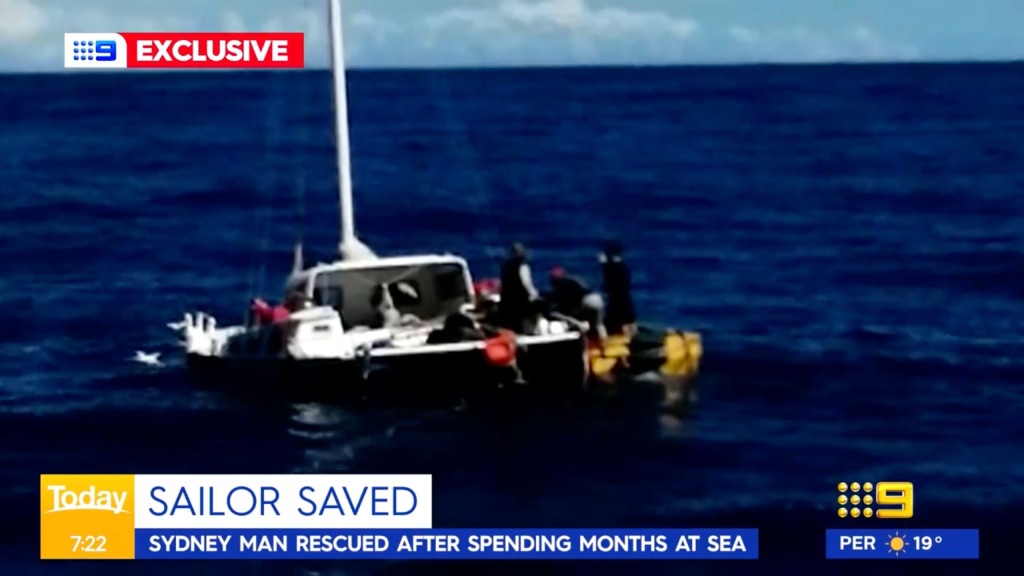
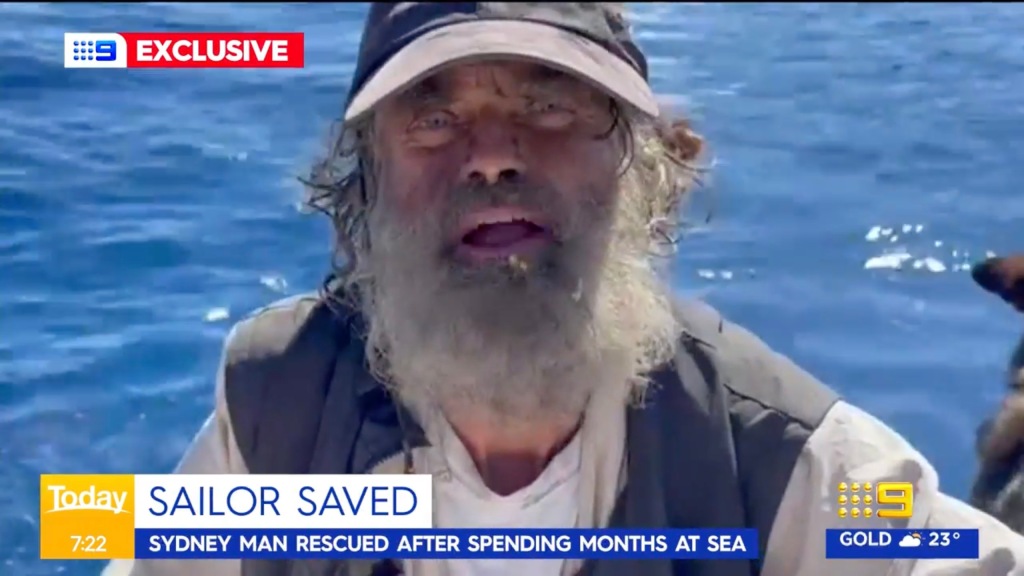
In the movie, the FedEx worker who survived a plane crash was rescued by a ship while on a makeshift raft after he finally managed to escape from an uninhabited Pacific island, where he spent four years.
Noland’s only company was “Wilson,” a volleyball he found in a package and named after the manufacturer. The ball featured a bloodstained handprint that he made to look like a face.
But Shaddock, a retired IT worker, was better off with a living companion, Bella, during his ordeal.
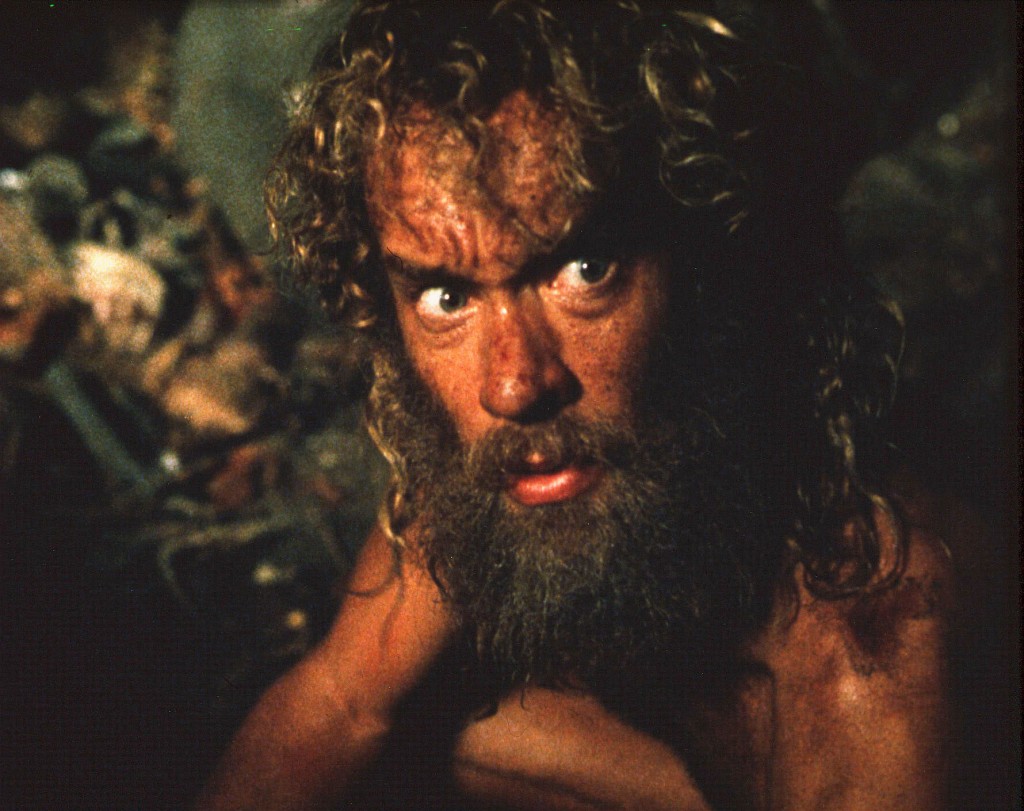
“Can I get your name, please?” a rescuer asks him in video of the rescue, the Telegraph reported.
“I’m Tim Sharrock, I’m from Australia,” he replies.
Sharrock and Bella, who were taken aboard the trawler, appeared to be in remarkably good shape, given what they endured.
”I have been through a very difficult ordeal at sea,” he told 9News. “I’m just needing rest and good food because I have been alone at sea a long time. Otherwise, I’m in very good health.”
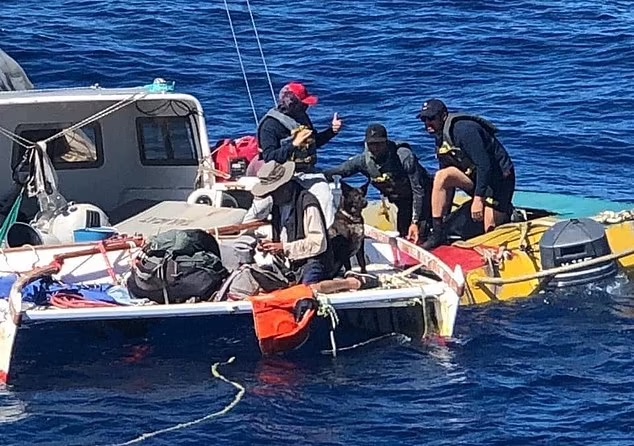
Mike Tipton, an ocean survival expert, attributed Shaddock’s endurance to a “combination of luck and skill.
“And also knowing, for example, as Tim did, that during the heat of the day, you need to protect yourself because the last thing you want when you’re in danger of becoming dehydrated is to be sweating,” he told the outlet.
Tipton said Sharrock was able to secure a fresh supply of water thanks to the climate and location.
“These voyages of any great length tend to occur in the Pacific,” he said. “If you look back through history, they tend to occur in warm environments, because if it was a cold environment, you don’t survive long enough.”
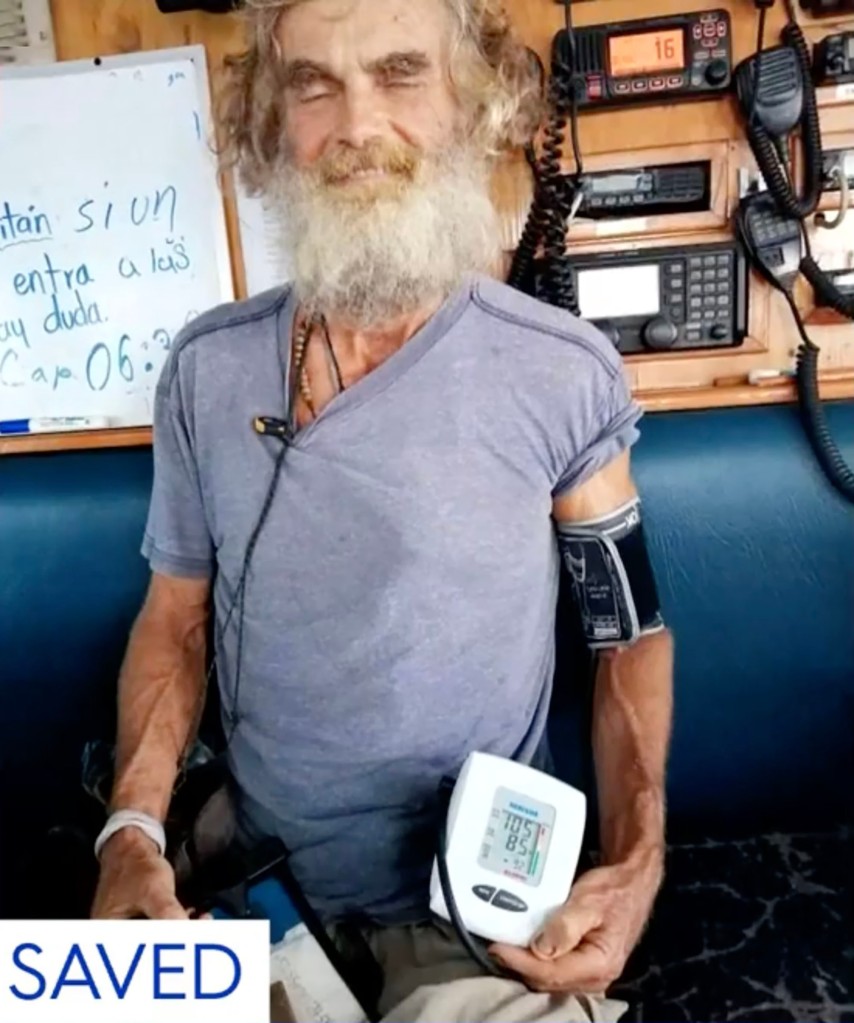
The expert described Shaddock’s rescue as a “needle in a haystack” scenario.
“People need to appreciate how small the boat is and how vast the Pacific is. The chances of someone being found are pretty slim,” he said.
Tipton added that having Bella — as opposed to an inanimate object – “may have well made the difference.
”You’re living very much from day to day, and you have to have a very positive mental attitude in order to get through this kind of ordeal and not give up,” he told 9News.
“Just imagine how dark and lonely it would feel out there at night time,” Tipton said.
“But also, having a plan, rationing yourself in terms of water and food, is really the secret to long survival voyages,” he added.
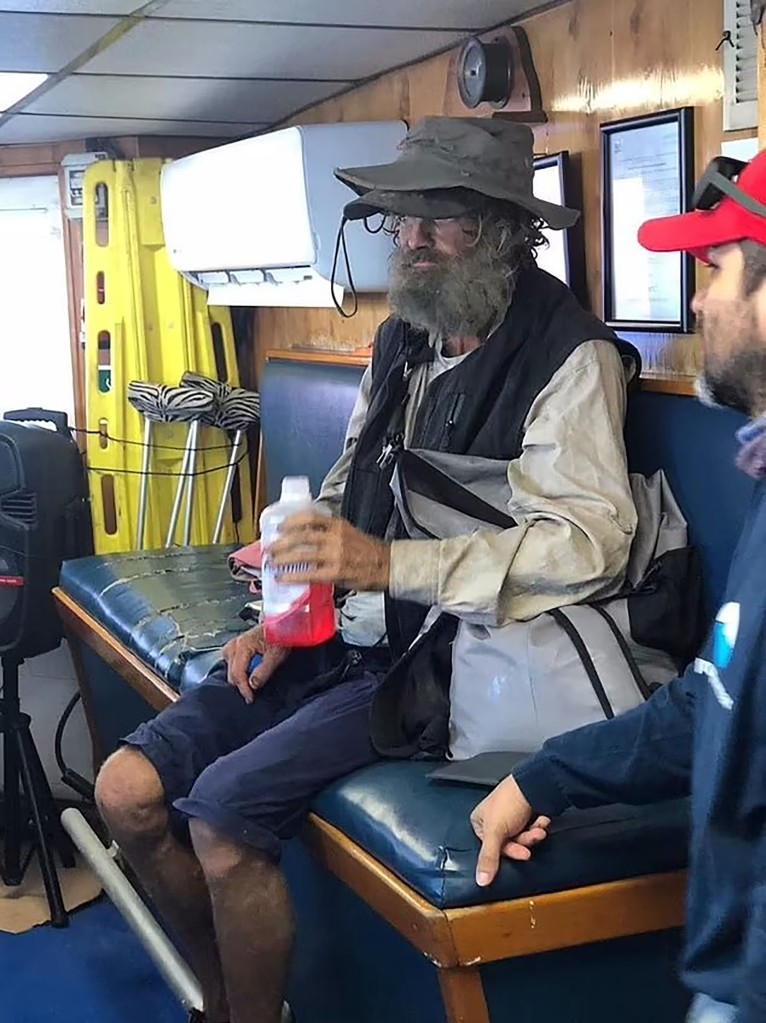
Shaddock worked in the IT industry before retiring and looking for a new challenge, friends told the Telegraph.
“He’s got a bit of money, he gets bored and does new things,” a pal said.
About 20 years ago, Shaddock survived bowel cancer after periods of fasting and eating a diet of raw food, the outlet noted.
“When my health was at a critical stage, it involved a lot of fasting, juicing and smoothies,” Shaddock told the website The Raw Food Kitchen. “I recall spending over three months living solely on green vegetable juice at one stage.”
Shaddock will now need to slowly return to a normal diet after his meager offerings at sea.
“It has to be a slow return to normal, and he will probably need to be kept an eye on for several months,” Tipton said.
Read the full article Here


